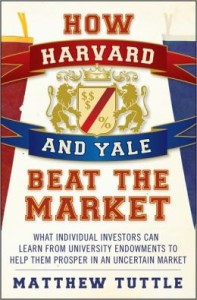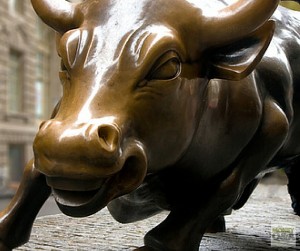Episode #14 How To Make Money Investing Like Harvard And Yale’s Endowments

To make matters worse, colleges have enjoyed endowments that have posted gains in their investments that have outpaced the stock market indexes. For a 10 year span from 1998-2008, Yale saw its endowment earn over a 17% annual rate of return on its investments. Harvard’s endowment earned over 15%, and the S&P 500 only returned a little over 7% during the same time span. So, the question becomes…can average investors earn a return like these college endowments? What does it take? Can it be done? Can the average investor learn how to make money investing and earn a return like these college endowments?
How To Make Money Investing Like College Endowments
In this episode of the Money Q&A podcast, “Your Money: Your Choices“, I interview Matthew Tuttle who is a certified financial planner and a partner in the Private Client Group, LLC, a wealth management firm. He is also the author of the book, “How Harvard and Yale Beat the Market: What Individual Investors Can Learn from University Endowments to Help Them Prosper in an Uncertain Market”. It is a great conversation for parents with college bound children and investors looking to get the highest rates of return for their investments like colleges have enjoyed for several decades with their endowments and investments.





